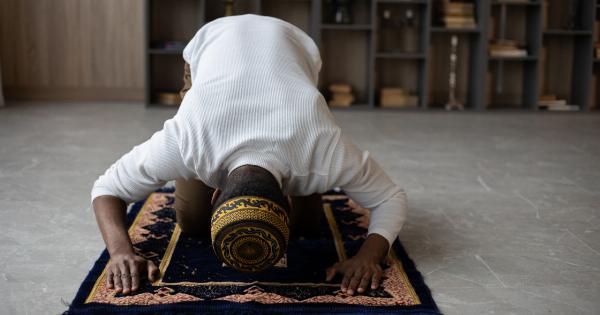In recent years, the world has witnessed an increasing number of mental health issues in men. These problems are not confined to Western societies, but are seen in all corners of the globe.
However, the way these problems manifest and the ways they are addressed can differ between cultures. This article will explore the male heart through the lens of Eastern problems, examining how traditional Eastern beliefs and practices can affect the mental well-being of men.
What Is the “Male Heart” in Eastern Philosophy?
In Eastern philosophy, the “male heart” is the essence of a man’s being. It is considered the source of his strength, courage, and resilience.
The male heart is often associated with the Confucian concept of “manhood” or “virility,” which emphasizes the importance of self-control, responsibility, and duty. According to this philosophy, men are expected to be providers, protectors, and leaders in their families and communities.
Common Mental Health Issues Among Men in the East
Despite the emphasis on strength and self-control, many men in the East struggle with mental health issues that can be traced back to cultural expectations and social pressures. Some of the most common problems include:.
Depression and Anxiety
Men in Eastern societies are often expected to be stoic and unemotional, which can make it difficult for them to talk about their feelings or seek help when they are struggling.
This can lead to feelings of isolation and loneliness, which can in turn trigger depression and anxiety. Additionally, many men in the East experience high levels of stress due to work and family responsibilities, which can exacerbate these issues.
Substance Abuse
Alcohol and drug abuse is another common issue among men in the East. In many traditional Eastern cultures, men are expected to be heavy drinkers as a sign of masculinity and social status.
This can lead to a culture of heavy drinking and substance abuse, which can have serious negative effects on mental and physical health.
Relationship Problems
The Confucian ideal of “manhood” emphasizes the importance of family and relationships, but this can also put a lot of pressure on men to conform to specific social norms and expectations.
When relationships don’t meet these expectations, men can feel a sense of failure or shame. This can lead to relationship problems, such as infidelity, divorce, and domestic violence.
How Eastern Beliefs Impact Mental Health
The cultural expectations and social pressures that contribute to mental health issues in the East are often tied to traditional beliefs and practices. Some of the ways in which these beliefs impact mental health include:.
The Importance of “Face”
The concept of “face” is very important in many Eastern cultures, and refers to a person’s reputation and social status.
As a result, people in these societies are often very concerned with maintaining their face and avoiding shame or embarrassment. For men, this can mean avoiding seeking help for mental health issues or admitting that they are struggling, as doing so could damage their face.
The Pressure to Succeed
Many Eastern societies place a high value on success and achievement, and men are often expected to excel in their careers and provide for their families.
When men feel like they are falling short of these expectations, they may experience feelings of failure or inadequacy, which can lead to mental health issues.
The Importance of Family
Family is a central part of many Eastern cultures, and men are expected to be loyal and devoted to their families. However, this can also put a lot of pressure on men to fulfill the roles of provider, protector, and leader.
When men feel like they are not living up to these expectations, they may experience stress, anxiety, and other mental health issues.
Breaking the Stigma: Addressing Mental Health in the East
Despite the prevalence of mental health issues among men in the East, there is still a strong stigma surrounding mental health. Men are often reluctant to seek help or talk about their feelings due to fear of being seen as weak or inadequate.
However, there are some steps that can be taken to break this stigma and address mental health issues:.
Education and Awareness
One of the most important steps is to raise awareness about mental health issues and encourage education.
By providing men with accurate information about mental health and addressing misconceptions, we can help break down the stigma and encourage more men to seek help.
Community Support
Building a community of support is also important. Men need to know that they are not alone in their struggles and that there are others who understand what they are going through.
By creating safe spaces for men to talk about mental health and share their experiences, we can help reduce feelings of isolation and shame.
Breaking Stereotypes
Finally, it’s important to break down stereotypes and challenge traditional beliefs about masculinity and strength.
Men need to know that it’s okay to ask for help, that emotions are normal and healthy, and that seeking treatment for mental health issues is a sign of strength and courage.































